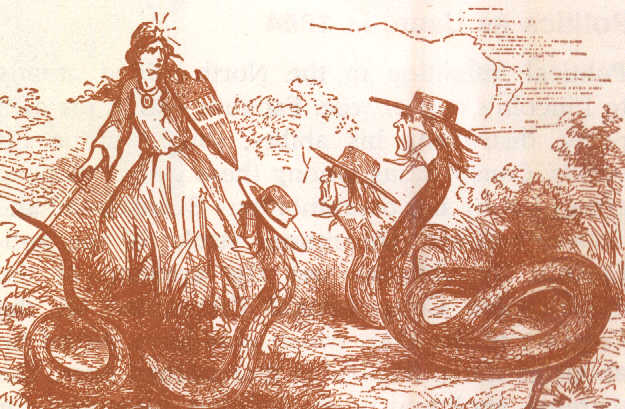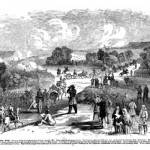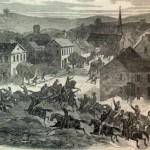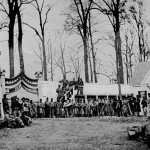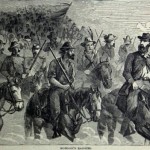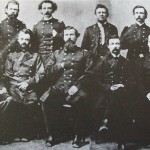By 1863, with the war dragging on and horrific Union casualties revealed in their newspapers, Hoosiers faithful to the Republican Party and the Lincoln administration began to look around them at their Democratic neighbors. Many Democratic families had members who were serving in the Union army, even though they disagreed with the politics of the president as well as Indiana’s Republican governor Oliver Morton.
Other Democrats, however, were outspoken opponents not only of Lincoln’s policies but of the war itself; these Anti-War Democrats continually called for negotiations with the South and urged a compromise that would bring a swift end to the war.
Indiana’s Republican newspapers attacked Anti-War Democrats on a regular basis. On February 5, 1863, the editor of the Marshall County Republican, published in Plymouth, Indiana, reported on a meeting of local Democratic legislators who were calling for the state to stop allocating funds for the “unconstitutional war”: the “Copperheads,” he wrote, “proved by what they said that they are rebel sympathizers.”
A few weeks later, he was warning his Republican readers of the “imminent danger of an uprising among the Copperheads . . . against the authority of Government.” The newspaper also printed letters from Indiana soldiers in the field—the December 31, 1863, issue reproduced a letter from “A.S.L.,” serving with Company H of the 29th Indiana, who exhorted those on the home front: “All we want our friends at home to do is to whip the Copperheads with ballots, and we will whip their rebel friends with bullets.”
Until the end of the war, Indiana Republicans, from Gov. Morton to ordinary citizens like those in Marshall County, continued to worry that many Hoosier Democrats were conspiring with the South to overthrow the state government. Every Union victory was seen as a defeat of both the South and the Copperheads.
An anonymous eleven-stanza poem, published in the September 29, 1864, issue of the Plymouth newspaper, sums up the Republican view of Copperheads: the author accuses them of treason and hatred of the Union and its soldiers; predicts that they will “crawl away for very shame” when the Union is restored; and concludes that “Upon them rests, as all well know/God’s bitter curse of servile woe/Upon thy belly shalt thou go/Vile Copperhead.”
Sources: Thomas Rodgers, “Copperheads or a Respectable Minority: Approaches to the Study of Civil-War Era Democrats,” Indiana Magazine of History June 2013; Marshall County Republican.










